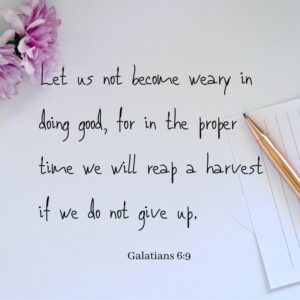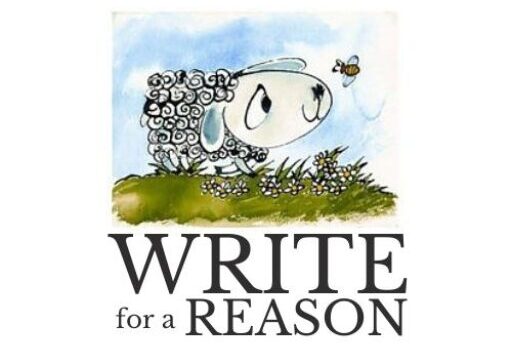Hello and thanks for coming over! I hope you find this video training useful in beating writer’s block. 🙂
Simply click below to watch the video, or if you prefer, read the transcript underneath.
Enjoy!
Today I thought I would take a step aside from the actual writing process and look at the whole issue of writer’s block.

Surely every writer suffers from writer’s block at some time in their writing lives. After all, none of us are robots! This feared and dreaded affliction is a part of the creative process – ditch diggers don’t get ditch digger’s block, carpet layers don’t get carpet layer’s block, but writer’s block (all joking aside) can be a very real problem. And there are levels of it, because writing is creative – it’s an art, not a science.
Any creative process, if we are not following a definite pattern or blueprint, means that we have to think, to come up with something new and dynamic, something unique.
No other species of animal can create like we can. Squirrels build dreys, birds build nests according to their kinds, foxes live in holes, beavers in dams. But people build castles, huts, caravans, terraces, yurts, mansions, cottages, boat houses, houses on stilts, blocks of flats, bungalows and follies. And that’s just homes! Think of the amazing variety of works of art we are able to create: paintings, sculptures, interior décor, garden design, edible creations, computer programmes, and so much more. The creativity of mankind is truly awesome. We can only use the materials the Lord has provided, but still, we are able to both create and appreciate beautiful things.

If we want to write, we can’t just weigh out the ingredients, stir them together and out will come a delicious novel! Writing is one of the amazing ways which shows we have been made in the image of our Creator God. After all, the Bible is full of stories!
Stories have the ability to make readers laugh, smile, cry and dream. Stories can take our readers far away to new worlds limited only by imagination. . . . and for those of us who write for the reason of sharing the good news of Jesus, our stories also have an eternal perspective.
Awesome.
But with all that awesomeness in mind, it’s no surprise, really, that in our humanity the creative process sometimes fails us for a while.
So What Is Writer’s Block?
There are various definitions of the term writer’s block, but for me it’s simply:
The temporary inability to write creatively.
“Temporary” is the key word. Some writers can find themselves stuck for an hour or two, others for years. And it can come and go like the waves of the sea!

Understanding our humanity (and our reliance on God) can be the first step, I believe, in accepting the fact that sometimes it will take time for us to gain the inspiration we need to either begin to write, or to move our story forward. If we can rest in the process of getting back to being creative again, rather than getting frustrated and fighting against it, we are more likely to get back on track.
Getting tense and stressed won’t help!
What Causes Writer’s Block?
Let’s first have a look at some different symptoms of writer’s block, because if we can get a diagnosis, it will be easier to find a ‘cure’.
- We are stuck with a plot issue
- Our minds are distracted with other things
- We are afraid of starting or continuing in case our story fails to live up to expectations
- We have no definite goal or deadline
- A physical or emotional condition is wiping out our creativity
- We have a perfectionist attitude
- General procrastination/laziness
Recognise any of these? 🙂 I think I have probably suffered most of these at various times in my life!
So What Can We Do?
I’m going to go over all of the above causes one by one, with some suggestions as to how to get over the problem. As we are all different, some you may find helpful, some not, but I hope that you might find an idea or two to inspire you to get writing again at just the time you need it. 🙂

We Are Stuck With A Plot Issue
We may be in the middle of writing a novel when we get stuck with a plot issue. This is a frustrating problem, especially when we have set time aside to write and the time is being eaten away with nothing to show for it!
Here are some ideas that might help:
- Pray!
- Have a change of scenery. Do something completely different for a while.
- Talk to an encouraging friend (avoid the negative one who will drag you down). Tell them all about your plot problem – just talking it over can bring a solution to mind.
- Move! Studies have shown that the brain works better after exercise, so go for a walk, run, swim or cycle ride, do some press-ups or dance around the room!
- Allow yourself time to think. Go for a drive, sketch your protagonist, mow the lawn, wander round a garden centre – whatever does it for you.
- Eat something healthy. Maybe you just need something nutritious to get your brain to function!
- Drink plenty of water. Dehydration is known to cause lack of concentration.

Our Minds Are Distracted With Other Things
Most of us lead busy lives. We have to balance work and/or voluntary activities with family, church and other responsibilities. We can have so much on our minds that when we sit down to write our minds are so full we are unable to concentrate.
Here are my suggestions for getting that story finished:
- Pray before you start, and leave everything that is concerning you with the Lord. If a thought about the shopping list, your elderly mother or school visit pops into your head, remind yourself that you have already left that one with the Lord!
- Make a list of everything else you need to get done later in the day, so it’s no longer on your mind (and avoid the temptation to keep looking at the list!).
- Do anything essential before sitting down to write. If you’re worrying about forgetting to tax your car, being creative is going to be hard. 🙂
- Turn off distractions. Turn off emails, the phone, and anything else you may be tempted to ‘quickly check’.
- Create a pleasant writing space. If you like a muddle, make sure it’s a muddle that makes you smile. If you like order, have everything in place, so your working environment is not distracting you, however tiny it is! I started Dernier Publishing in a corner of my dining room. 🙂

We Are Afraid Of Writing In Case Our Story Is Rubbish
This is a common, and often subconscious, reason for writer’s block. Here’s the biggest symptom:
If, at a time you have set apart to write, you can think of all sorts of things you could do or should do, and do those things instead of writing, fear is probably at the bottom of it all.
Let’s face it, when cleaning the oven seems more appealing than writing, something is definitely not right!
We all want to do well. None of us wants to do something badly. Suppose our story is rubbish? Suppose we give it to people to read and they don’t like it? None of us want to be ‘rejected’ by agents and publishers, and what’s more, we don’t want to waste our time.

If such doubts about our writing are lurking at the back of our minds, how easy is it going to be to sit down and do our very best? Writer’s block could be the result.
So how do we get over our fear?
- Recognise that starting any new creative process is always going to be scary. It’s fine to be afraid! Courage is being afraid but going ahead anyway.
- Don’t give your story to all and sundry to read for their comments, especially before it’s the best it can possibly be. If you do need feedback, choose your readers carefully. Avoid the scoffers and mockers, those who put you down. Choose someone who knows what they are talking about, but will be encouraging.
- Keep going. Grit your teeth and persevere, no matter what. Give yourself a pat on the back if you have finished anything – you’re streets ahead of most people, who never even start!
- So what if your story isn’t all that good? The next one will be better! The first few attempts at anything new will be a learning curve.
- Get some training. Determine to get better at your craft. Knowing you are doing things properly will help you overcome your fear. If you haven’t done the Write for a Reason course yet, why not give it a go?
- Take small steps. Did you do the writing challenge earlier this year? A great way to get over fear is to take small steps on the way to a bigger goal, e.g. writing a short story before launching into a full length novel.
- Remember the parable of the talents? Some people were given ten talents, some five, some one. Never mind how many you have, you have to use them, because the Master is coming back one day and he wants interest on what he has given you. That’s a serious responsibility.
- Develop a thick skin. There will always be haters, scoffers and mockers, people who give bad reviews. It’s discouraging, but we should be more afraid of what will happen if we don’t write than if we do.
Exercise 1
Suppose beloved authors gave up writing because one of one or two people didn’t like their stories? To Kill A Mockingbird by Harper Lee is one of the most popular books ever, but here’s what one reviewer says, “If I could give this no stars, I would. This is possibly one of my least favorite books in the world, one that I would happily take off of shelves and stow in dark corners where no one would ever have to read it again.”

Look up the reviews for a handful of your favourite books on Amazon. You will find some bad reviews among the good ones!
We Have No Definite Goal Or Deadline
This can be a crusher. If we have no particular aim or deadline to reach, it’s easy to play games, check emails and twitter, upload photos, update facebook and browse for hours on end instead of concentrating on our writing.
Without a time deadline we can easily lose the plot (sorry!).
So if this is a problem for you, what can you do?

- Set yourself a realistic deadline. Could you finish the first draft by the end of the summer?
- Break your final deadline up into smaller goals. If you’re going to finish your first draft in twelve weeks, will that mean a chapter a week, 500 words a day? Having a definite daily or weekly deadline is an excellent way to get momentum.
- Write down you goal and tell someone who will hold you accountable.
- Celebrate every time you reach a goal. Could you keep a chocolate bar in the cupboard, a beer in the fridge, plan an outing when the first draft is complete? 🙂
A Physical Or Emotional ConditionIs Wiping OutOurCreativity
There are times when we just can’t seem to write anything creative due to an emotional, mental or physical condition. Grief, illness, depression – they can all weigh heavily on us. Writer’s block can be the result. Mercifully, these times can pass quickly, as in the case of a cold or a touch of ‘flu. In some cases they can last much longer – some of you will know exactly what I mean.

So is there anything we can do?
- Set your writing aside for a while. Sometimes we have no choice but to be reasonable and set our writing to one side until we feel better. This can be frustrating, but there is a time for everything under the sun.
- Try jotting down ideas for stories when you feel up to it. Work on some character sketches, scenes, interesting plots. You may be able to use these at a later date. Even if you can’t, you’ll have kept your hand in. 🙂
- Take on smaller writing tasks. How about writing a journal, writing letters, writing a blog or poetry, if the process of writing stories is too taxing?
- Get some rest and relaxation. We all go through times in our life when we need some ‘r and r’. We can’t be creative on empty. We get tired, or dull. If you need a change of scenery, take one. Don’t sit at your computer feeling frustrated. Go out if you can, or if that’s not an option, at least close up your computer and read a book, or take a nap if you need one. We’re not robots!
- Pray. And don’t feel guilty. The Lord understands our human frailty. He knows if we are skiving off or genuinely needing a break!

We Have A Perfectionist Attitude
Wanting to get everything right is laudable, but striving too hard after perfection can be a killer! It can be linked with the fear of not being good enough. The three biggest symptoms of this type of writer’s block are:
- The inability to actually start writing a story you have in your head.
- Editing the same few sentences over and over again.
- Giving up on a story you haven’t completed, and starting something new. Then repeating the process.
What might have been a good story may never see the light of day if you insist on everything being perfect.
So how can you get over this type of writer’s block?
- Recognise that there’s no such thing as the perfect story. Recognise that your first story may not be a masterpiece – that doesn’t mean that readers won’t enjoy it!
- Force yourself to finish a story you have begun. Learning any skill takes time and practice – the more practice you get, the better your stories will become.
- Set yourself a deadline for finishing your story. Persevere and don’t give up.
- Do not allow yourself to begin editing until you have completed the first draft. I mean that!
General Procrastination/Laziness
Some of us are perhaps lazier than others and more prone to doing what’s easy instead of what we really should be doing. At the first hurdle, we give up because we’re not used to pushing through when the going gets tough. And let’s face it, writing can be hard work at times! Sometimes we need to j.u.s.t k.e.e.p g.o.i.n.g. 🙂
So here are some tips if procrastination is causing your writer’s block:
- Don’t wait for the muse to strike. Just write.
- Put your butt in your seat and write. Every time your mind begins to wander or you are tempted to check facebook, get firm with yourself and get back to work!
- Write at the best time for you. Set time aside to write when you are at your best, whether that’s morning, afternoon, evening or the middle of the night. You are less likely to procrastinate if you are feeling in the mood.
- Set yourself a reasonable, sensible target every time you sit down to write, and don’t get up until you have reached it. A number of words can be better than a number of hours for procrastinators, as you could just sit dreaming or doodling for two hours. (Not telling how I know that!)
- Persevere. If you need treats to motivate yourself, do it!

Preventing Writer’s Block
Wouldn’t it be so much better if we could actually prevent writer’s block in the first place? Of course that’s impossible all the time, but still, there are some things we can do to help.
Here are some tips:
- Plan your story carefully. We go into plotting and planning in the Write for a Reason course. If you have thought through your plot and what happens at each step of the way, you’re less likely to reach that point of ‘now what?’.
- Make sure you have a strong enough reason to write. If you are feeling positive about your writing and your purpose, you are less likely to hit the black wall. Imagine children reading your book!

- Look after yourself. Eat well, get enough sleep and enough exercise. Your physical needs are not separate from your mind – they are interconnected. If you know you are going to spend time writing, get an early night, have a good breakfast and drink plenty of water.
- Are you trying to do too much? At times we ask too much of ourselves, or other people ask too much of us! Sometimes we may have to say no to things, be true to our calling. Maybe we have a gift for writing, but need to set it aside for a while to care for a sick relative, for example. Most of us could probably delegate household tasks to stop ourselves feeling overwhelmed! Could someone else cook the dinner or clean the car while you write? Or perhaps you have said yes to too many things and need to cut back? Pray for guidance.
- Join a writer’s group for inspiration. Keep the writer’s block at bay with some regular encouragement!
- Phone a friend. Have a trusted friend you can phone (someone who gets the whole writing thing) and ask them to pray for you when you start to feel that block approaching.
- Get some writing software. If you know you jump about instead of concentrating on one thing at a time, you may find specialised writing software, such as WriteMonkey or Scrivener, useful for keeping yourself focused and organised. Google a few options, see if any might be right for you.
- Get some help quickly. Feel the block approaching? Go for that walk, talk to someone, do whatever you need to do, but do it fast.
- PRAY every day, before you start. And get someone else to pray with you and for you. If you are writing with the aim of reaching children and young people with the good news of Jesus, you are going to need some prayer support.

So there you go, some thoughts on writer’s block. I hope you have found that helpful. You will have to find out what works for you, but why not read back over all the ideas and find two or three that really hit home for you?
Exercise 2
Write down the three or four reasons you most often get writer’s block, and what you are going to do from now on to be able to get back on track.
And let me know what those things are – putting it in writing and telling someone else will help you achieve your goal. 🙂
I look forward to hearing from you!
One very last thing
Be kind to yourself!
Janet

